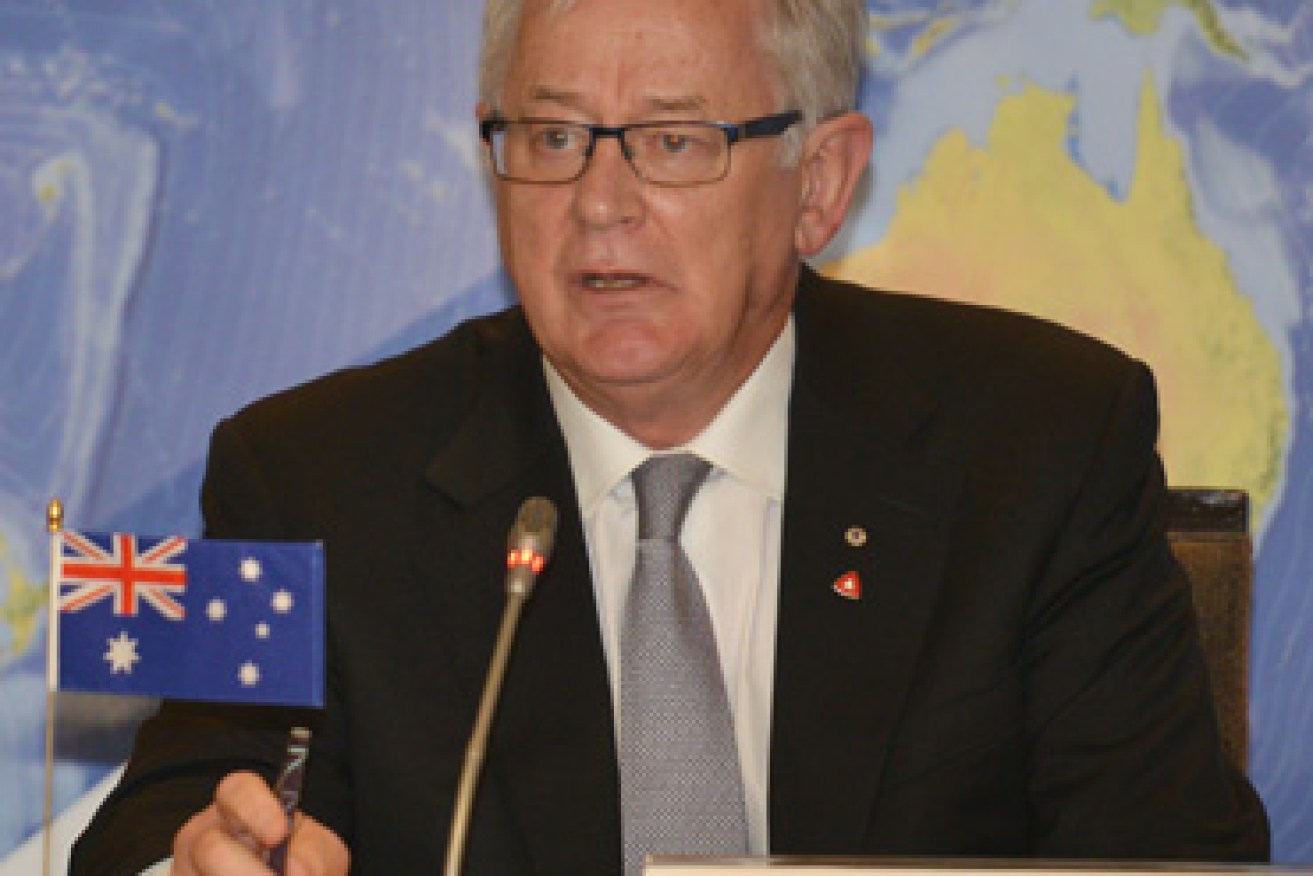Secret foreign courts ‘threaten democracy’

Mr Robb played hard-ball with US on its medical IP rules. Photo: Getty
The Australian government could be sued for unlimited amounts of compensation by foreign companies unhappy with our laws, a leaked document may reveal.
On Thursday, Wikileaks published a confidential chapter of the Trans-Pacific Partnership (TPP), a 12-nation economic pact that is the largest of its kind in history.
The as-yet unsigned agreement between Australia, New Zealand, the US and nine Asian nations would expose the national government to the jurisdiction of foreign tribunals that “overrule the national court systems”, Wikileaks has claimed.
• Shadowy trade agreement ‘at advanced stage’
• Secret trade deal turns consumers into criminals
• Russia part of China’s dream for the Asia-Pacific
This would enable multinational corporations to sue for “expected future profits” if laws enacted by the Australian parliament impacted substantially on their investments, Wikileaks said.
In a statement, Wikileaks editor Julian Assange described this “unaccountable supranational court” as a threat to parliamentary and judicial sovereignty.

Andrew Robb is one of 12 trade ministers negotiating the pact. Photo: Getty
“Similar tribunals have already been shown to chill the adoption of sane environmental protection, public health and public transport policies,” Mr Assange said.
A footnote in the leaked document suggests the Abbott government would reverse the previous Labor’s opposition to the tribunals if “certain conditions” (believed to relate to the integrity of Australia’s health care system) were met.
Consumer group CHOICE has warned the nation could be exposed to further legal action from big tobacco companies (if the leak is accurate).
Tobacco giant Philip Morris is already suing the Australian government for its plain packaging legislation under a trade agreement with Hong Kong.
“Worryingly, the leaked text reveals there will be no caps on fines and damages that can be sought by a foreign investor when suing the Australian government under the TPP,” said CHOICE chief executive Alan Kirkland.
“The make-up of these Tribunals makes a mockery of procedural fairness, with judges able to rotate between acting as adjudicators and acting as advocates for companies.
“This would never be allowed in Australian courts and raises major issues of bias and impartiality.”
The leaked chapter has not been authenticated by government sources. Even if verified, the document may not be the final version of the agreement, given that negotiations are ongoing.
Concerns may be exaggerated
International trade law expert Professor Jürgen Bröhmer told The New Daily the opponents of the agreement may be “overstating” the risks.
The foreign tribunals, known formally as investor-state dispute settlements, are not inherently harmful or beneficial, and may in fact have reciprocal benefits for Australian companies, said the Dean of Murdoch University law school.
The impact would depend on the final wording of the agreement, Professor Bröhmer said.
“The mistake would not be to allow investor-state dispute settlements. The mistake would be for the government not to protect public policy sectors that they deem so important as needing protection – such as public health or the environment – from damage payments.
“Much depends on what the negotiation result in that area actually is.”
The leaked chapter was supposed to be kept secret for four years after the trade deal was signed or after negotiations ceased.
Australia, New Zealand, the USA, Japan, Mexico, Canada, Malaysia, Chile, Singapore, Peru, Vietnam and Brunei are negotiating the agreement, making it the largest economic treaty in history.








